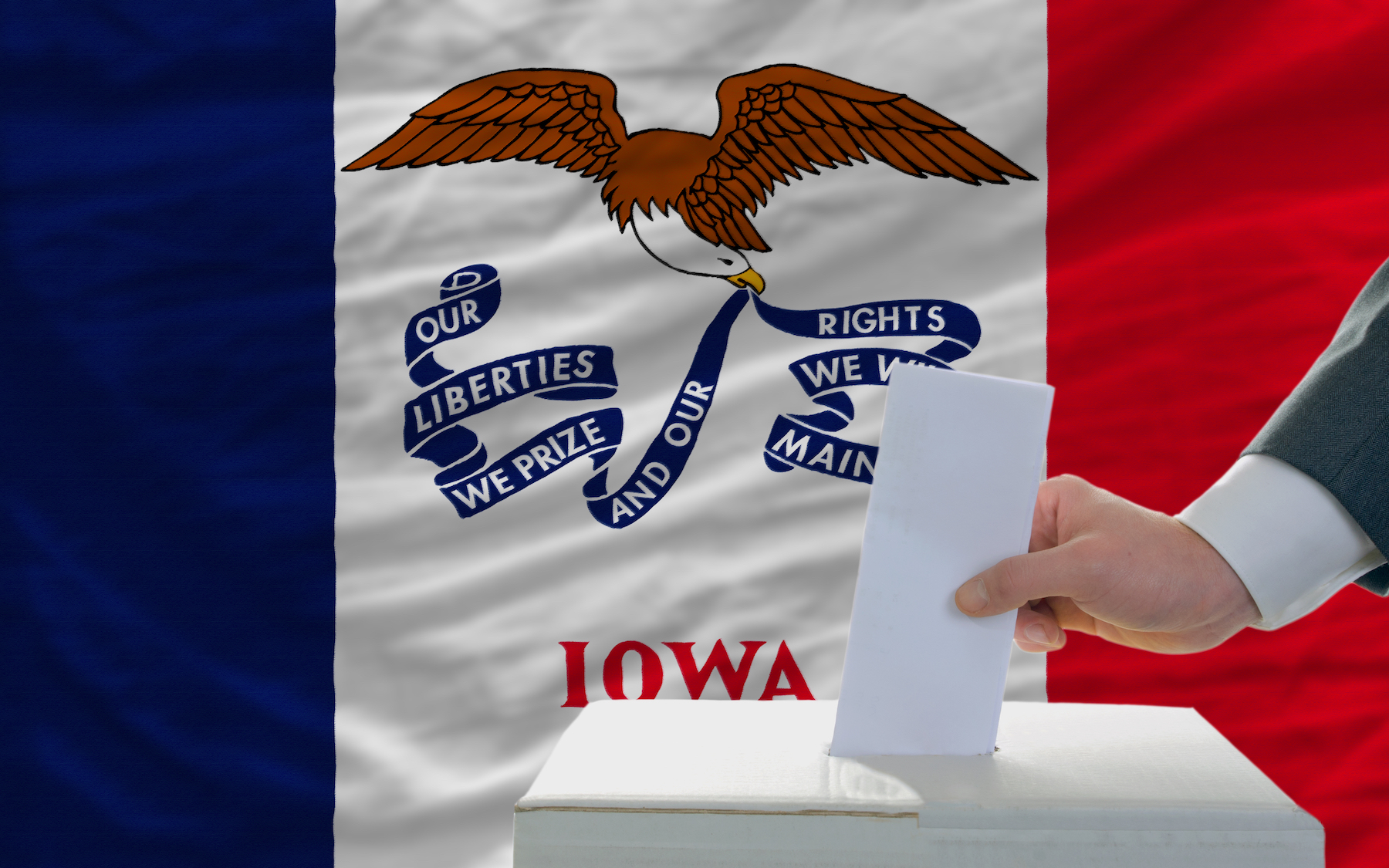Rick Morain is the former publisher and owner of the Jefferson Herald, for which he writes a regular column.
During the “Progressive Era” in American history—two decades or so, from roughly 1896 until 1917—a number of states adopted the “initiative” and “referendum” as part of the way their governments operated. Many of those states were in the American West. Iowa was not among them. What would it be like here if we had taken that step—or if we did so now?
The initiative allows citizens to propose new legislation on the election ballot, and the referendum allows voters to vote those proposals up or down. That combination provides a way to bypass the state legislature which, as we know, doesn’t always enact legislation that is the people’s choice.
Iowa does have a referendum in specialized situations. One of those is that every judge must periodically stand for retention in office (every six years for District Court or Iowa Court of Appeals judges, and every eight years for Iowa Supreme Court justices). If a majority of voters say “no,” that judge or justice must step down. That process is like a “recall,” another innovation from the Progressive Era.
Another example of the referendum in our state is when two successive Iowa legislatures approve an amendment to the Iowa Constitution in exactly the same form. The proposed amendment is then placed on a statewide ballot, and the voters get to decide whether they favor or oppose the proposal. If the voters approve, then it becomes part of the state’s constitution. If they say no, then the proposal dies.
In 2021, Republicans in the Iowa House and Senate approved a state constitutional amendment that reads in part, “. . . this Constitution does not recognize, grant, or secure a right to an abortion.” The year 2021 was the first session of the two-year general assembly of 2021-22. So in order for the proposed amendment to appear on a statewide ballot, the next general assembly would need to approve it as well.
But House and Senate leaders did not advance the proposal in 2023 or in 2024. That was partly because GOP legislative leaders wanted to see how the Iowa Supreme Court would resolve legal challenges to abortion that were working their way through the state’s judicial system. If they choose to proceed with the proposed amendment, they could still do so. But they would need to call a special legislative session in time for a statewide vote later this year.
They have not done so yet, and it’s a foregone conclusion they won’t do it by the end of this calendar year. There are at least two reasons Republicans didn’t follow through.
One is that the current legal status of abortion in Iowa closely matches what GOP leaders want. After the legislature last year passed a law banning most abortions after embryonic cardiac activity can be detected, a Polk County District Court blocked the law from being enforced. The state appealed, and on June 28 of this year the Iowa Supreme Court by a vote of 4 to 3 ordered the injunction to be dissolved, allowing the near-total abortion ban to take effect. The ban became operative on July 29.
So while abortion is not totally illegal now in Iowa, most experts say that 99 percent of requests for the procedure will not be allowed under current law. And most Republican legislators seem satisfied with that outcome.
The second reason, probably more important, has to do with public opinion. Several opinion polls over the past several years have found that most Iowans, by 60 percent or more, believe abortions should be mostly or always legal. The polls indicate that if Iowans were allowed to vote on the proposed amendment, it would likely go down to defeat. Voters in the red states of Kansas and Kentucky rejected similar proposals in 2022.
Republican legislators don’t want to take that risk. While future Iowa Supreme Court justices could reverse the court’s recent abortion decision, and once again leave such matters to pregnant Iowans and their doctors, that is unlikely to occur anytime soon.
So the legislature has little to gain from asking Iowans what they think of the proposed constitutional amendment. In 2021, before the U.S. Supreme Court overturned Roe v. Wade, it seemed like a good idea to legislative Republicans. Now, not so much.
But if Iowa had the initiative and referendum, things could be entirely different. A popular movement could gather enough signatures to place on the ballot an different constitutional amendment, which would guarantee the right to an abortion under the Iowa Constitution. If polls and results from other states are any guide, such an amendment would stand a good chance of passage.
With a ballot initiative, Iowans might force a vote on other constitutional amendments, or simple statutes, that the public might support: forbidding taxpayer dollars for religious schools; returning to the progressive income tax rather than the current flat tax; guaranteeing that income taxes can be raised or lowered by a simple majority of legislators; limiting the use of eminent domain. You get the idea.
Sure, all those policies could also be enacted by electing legislators and a governor who favor them. But Iowans appear disinclined to do that. So in the absence of the initiative and referendum, Iowans, unlike the citizens of some other states, are at the mercy of their legislature.
However, in every year ending in a zero, the Iowa Constitution requires the state’s citizens to vote on whether to hold a constitutional convention to amend the basic document, or to replace it entirely.
Adopting an initiative and referendum process would require a state constitutional amendment. It’s intriguing to muse how Iowans would vote on that proposal if given the opportunity.
Top image is by vepar5, available via Shutterstock.

